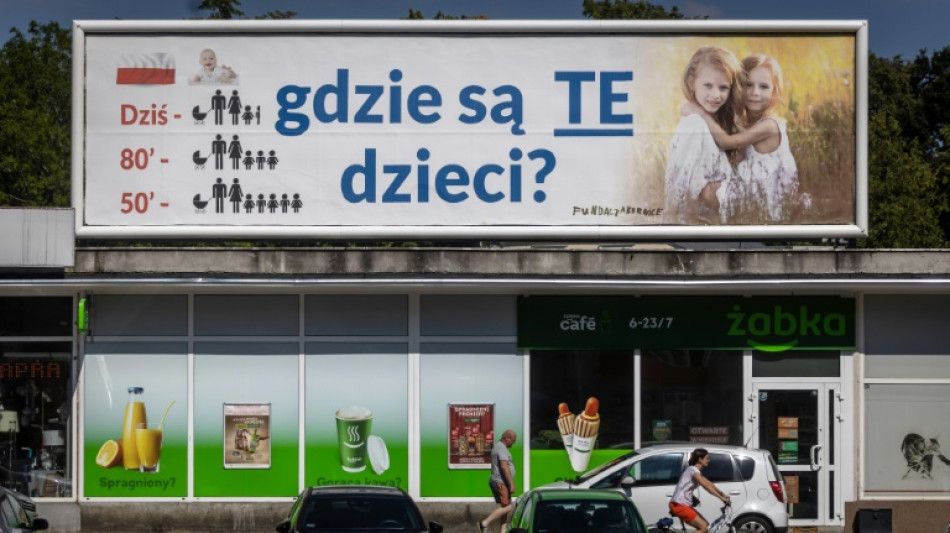
-
 Lyon win fourth French women's crown in a row
Lyon win fourth French women's crown in a row
-
Joaquin Phoenix stars in Covid-era thriller set in 'sick' America

-
 US Supreme Court blocks Trump bid to resume Venezuelan deportations
US Supreme Court blocks Trump bid to resume Venezuelan deportations
-
Arteta ready to smash Arsenal transfer budget to sign striker

-
 Combs's ex Cassie wraps grim week of testimony
Combs's ex Cassie wraps grim week of testimony
-
Trump reshapes US Mideast policy. Can deals work instead?

-
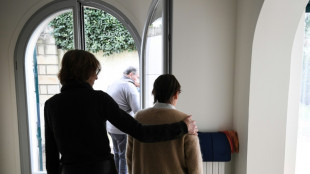 US approves first blood test for Alzheimer's
US approves first blood test for Alzheimer's
-
Vegas hits the jackpot with surge to the top at PGA

-
 Cucurella steers Chelsea towards the Champions League in Man Utd win
Cucurella steers Chelsea towards the Champions League in Man Utd win
-
Sinner lines up Alcaraz showdown in Italian Open final

-
 US stocks add to weekly gains amid trade deal optimism
US stocks add to weekly gains amid trade deal optimism
-
Sinner reaches Italian Open final and Alcaraz showdown

-
 US considering reality TV competition for citizenship
US considering reality TV competition for citizenship
-
France's Pavon delivers career major low 65 to contend at PGA

-
 Villa sink Spurs to bolster bid to reach Champions League
Villa sink Spurs to bolster bid to reach Champions League
-
Extra work, new caddie has Homa achieving major feats at PGA

-
 Gaza rescuers say Israeli strikes kill 100 as Hamas makes a plea to lift blockade
Gaza rescuers say Israeli strikes kill 100 as Hamas makes a plea to lift blockade
-
Salah slams 'harsh' Liverpool fans for jeering Alexander-Arnold

-
 Vegas closes with double bogey but still leads by two at PGA
Vegas closes with double bogey but still leads by two at PGA
-
US Fed plans to cut workforce by 10% in next 'couple of years'

-
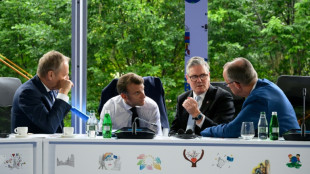 European leaders seek united front with Trump on Ukraine
European leaders seek united front with Trump on Ukraine
-
NWSL says should have stopped game after King collapse

-
 Ravers revel in Cannes spotlight with thumping 'Sirat'
Ravers revel in Cannes spotlight with thumping 'Sirat'
-
'Fortnite' unavailable on Apple devices worldwide

-
 Combs's ex Cassie takes witness stand for fourth day
Combs's ex Cassie takes witness stand for fourth day
-
Fraser-Pryce beaten by Jamaican starlet Tia Clayton in Doha

-
 Ayuso climbs to Giro stage seven win, Roglic takes overall lead
Ayuso climbs to Giro stage seven win, Roglic takes overall lead
-
EU tech chief urges US cooperation as key decisions near

-
 UN rights chief warns of 'ethnic cleansing' in Gaza
UN rights chief warns of 'ethnic cleansing' in Gaza
-
Piastri beats Norris again in McLaren's second 1-2 in practice at Imola

-
 ICC prosecutor, under investigation, steps aside temporarily
ICC prosecutor, under investigation, steps aside temporarily
-
German female-led 'folk-horror' early favourite in Cannes
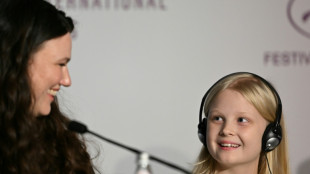
-
 Gaza rescuers say Israeli strikes kill 88 as Hamas makes a plea to lift blockade
Gaza rescuers say Israeli strikes kill 88 as Hamas makes a plea to lift blockade
-
Trump family hotel project in Serbia in doubt after forgery probe

-
 Alcaraz reaches Italian Open final and potential Sinner showdown
Alcaraz reaches Italian Open final and potential Sinner showdown
-
Venezuelan Vegas makes turn with two-stroke lead at PGA

-
 Trump insults Springsteen, Swift from Air Force One
Trump insults Springsteen, Swift from Air Force One
-
Ayuso wins on Giro mountain, Roglic takes overall lead

-
 FA Cup glory would mean more to Palace than Man City: Glasner
FA Cup glory would mean more to Palace than Man City: Glasner
-
Jihadists in Nigeria turn to TikTok to spread propaganda

-
 US singer Chris Brown ordered held until June in UK assault case
US singer Chris Brown ordered held until June in UK assault case
-
Polish PM says Russian hackers behind cyberattack on party website

-
 Lawyers for jailed Venezuelan migrants accuse El Salvador of 'torture'
Lawyers for jailed Venezuelan migrants accuse El Salvador of 'torture'
-
Brazil football federation appeals president's dismissal to Supreme Court

-
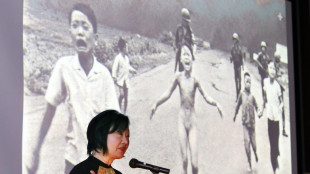 World Press Photo cast doubt on 'Napalm Girl' photographer's identity
World Press Photo cast doubt on 'Napalm Girl' photographer's identity
-
Slot's mind on next season but tight-lipped on Frimpong pursuit

-
 'Magnificent', 'handsome': Trump's fascination for Gulf leaders
'Magnificent', 'handsome': Trump's fascination for Gulf leaders
-
Albania's Rama gives showman's welcome to Europe's leaders
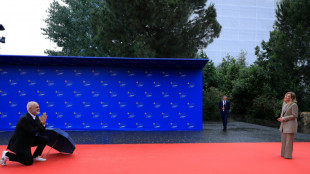
-
 Arteta says 'no regrets' as Arsenal target second spot in Premier League
Arteta says 'no regrets' as Arsenal target second spot in Premier League
-
Goodison goodbye worth it for 'better' Everton future, says Moyes


Billboards get Poles talking low birth rate
The billboards are hard to miss: large and plastered all over Poland, they show two blonde girls in immaculate white posing in a wheat field.
The caption asks: "Where are these children?"
An accompanying pictogram showing falling birth rate statistics claims the average Polish family had five children in the 1950s, down to three in the 80s and 1.5 today.
The signs, put up in recent weeks by a Catholic foundation, have triggered a fiery debate in the conservative-led country, where family and reproductive rights are an enduring source of tension.
The campaign has already spawned parodies. One version has a billboard with a dumpling pictogram and the line: "Where are these pierogis?"
Observers have been quick to point out that the figures in the original billboard are incorrect: official statistics show Polish women were having fewer than four children on average during the 1950s.
Still, the current birth rate is worrisome: with 1.4 children per woman, Poland is below the EU average and the threshold of generational renewal.
"Our campaign does not have an ideological or political goal," said the Kornice foundation whose president, a wealthy entrepreneur with Catholic ties, is one of Poland's richest men.
"It simply invites people to reflect."
- 'Fundamentalist undertone' -
Kornice had already made headlines for other controversial billboard campaigns, including ones opposing abortion and divorce.
For Paulina Zagorska, a women's activist, "the fundamentalist undertone of these billboards is obvious: their authors attribute the falling birth rate to contraception and challenges to the traditional family model".
Many observers have seized the occasion to denounce the near-total abortion ban introduced by the right-wing government and to condemn its family policies.
According to leftwing opposition MEP Robert Biedron, "there aren't enough children because of a shortage of nurseries and kindergartens... insufficient wages... a fear of pregnancy following inhuman anti-abortion laws".
A study published in May by the research firms SW Research and Garden of Words found that half of Polish women considered their country unfavourable to motherhood, notably because of abortion restrictions and difficult access to medical care.
- National mission -
Yet the birth rate is one of the key pillars of the ruling party's programme, whose staple is a popular monthly child allowance called 500+.
The party's family policies are meant to help young households get off the ground and to guarantee childcare during the early years.
But critics argue that the policies are mostly designed to benefit the traditional family model and to encourage women to stay at home.
The family ministry calls fertility "a vital issue" in its official programme, adding that it must be defended "even at the cost of the temporary withdrawal from the labour market of women who prefer to educate their children".
For Irena Kotowska, a demography expert at The Polish Academy of Sciences, these family policies adopted under the influence of the Church have been "ineffective".
Poland currently numbers 38.2 million people but its population could dwindle by 2.3 million by 2040, according to a Eurostat forecast.
- Historical factor -
Historic trends are also affecting the dwindling numbers.
"Massive unemployment, brought about by the sudden transition to capitalism, led to falling birth rates in the 1990s in the former Eastern bloc countries," Kotowska said.
"So, there aren't many women of childbearing age from those years, and they don't have a lot of children," she added.
The Czech Republic, another ex-communist country with a similar historical trajectory, was able to soften the trend "through progressive politics based on gender equality, institutional support and an adjustment of the labour market."
Kotowska doubts the influx of Ukrainians -- mainly women and children -- who fled Russia's invasion of their homeland for Poland is enough to "reverse the population decline".
Perhaps immigration from Africa and the Middle East could have an effect, though she said it was not realistic.
"I don't think it's conceivable in Poland, where birth policy is intrinsically linked to nationalism and ethnicity," she explained.
Meanwhile, the government recently warned in an official report of the long-term risk of "the death of the Polish nation".
A.Mahlangu--AMWN